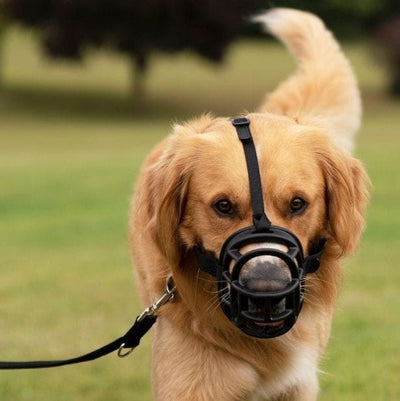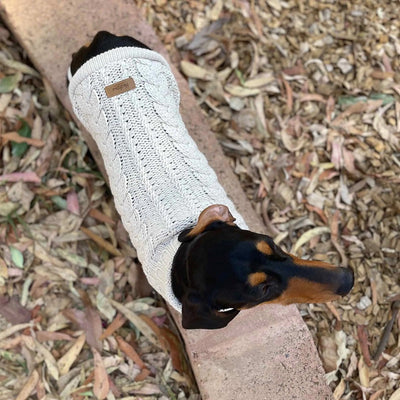
If your pup has an unpleasant smell, it could be from any number of things, ranging from poor hygiene to dietary issues. In this guide, we'll answer the burning question "why does my dog smell" and explore five common causes for pungent pet odours.
Poor Dental Hygiene in Your Dog
Skin Infection or Allergy-Related Issues.
Not Feeding Your Dog the Correct Diet Can Cause bad Odours
Feeding your dog a poor diet can contribute to them having an unpleasant odour. A poor diet can lead to digestive issues, which can cause bad breath, flatulence, and an overall unpleasant smell. In addition, certain foods, such as those high in sulfur, can cause a distinctive odor that may be noticeable on your dog's breath and skin.
Furthermore, a poor diet can also contribute to skin and coat problems, such as dandruff, itching, and excessive shedding. These issues can lead to a buildup of oils and bacteria on your dog's skin, which can create an unpleasant smell.
of oils and bacteria on your dog's skin, which can create an unpleasant smell.
It's important to provide your dog with a balanced and nutritious diet to ensure they stay healthy and happy. Feed your dog a balanced diet that is preservative free and nutritionally complete such as Man's Best Dog Food. The foods in this range of Man's Best Premium Dog Food is an Australian made and grain-free. The Ocean Fish recipe contains omega 3 oils that are beneficial to a dogs skin, heart function and coat.
Can a Probiotic Supplement Help with Doggy Odours?
Yes, a probiotic supplement can potentially help with doggy odors. Probiotics are beneficial bacteria that live in the gut and can help promote a healthy digestive system. They can also help prevent the overgrowth of harmful bacteria that can cause digestive issues and bad breath.
Probiotic supplements can also help improve your dog's overall health, which can have a positive impact on their skin and coat. A healthy gut can lead to a healthier immune system, which can help prevent skin infections and other conditions that can contribute to unpleasant odours.
However, it's important to note that not all probiotic supplements are created equal, and the effectiveness of a probiotic supplement can vary depending on the specific strain of bacteria used and the quality of the product. It is best to use only a probiotic supplement that is suitable for dogs.
In addition to probiotics, maintaining good hygiene practices, such as regular grooming, brushing your dog's teeth, and cleaning their ears, can also help prevent unpleasant odours.
Excessive Grooming Occurring at Home.
Regularly Bathing Your Dog in the Wrong Shampoo or Conditioners
 designed for dogs, as these will not contain any harsh chemicals that could potentially irritate them and make their coats smell bad. Never use human shampoo or conditioning products on any pet. These can cause superficial burning on the skin.
designed for dogs, as these will not contain any harsh chemicals that could potentially irritate them and make their coats smell bad. Never use human shampoo or conditioning products on any pet. These can cause superficial burning on the skin. 




